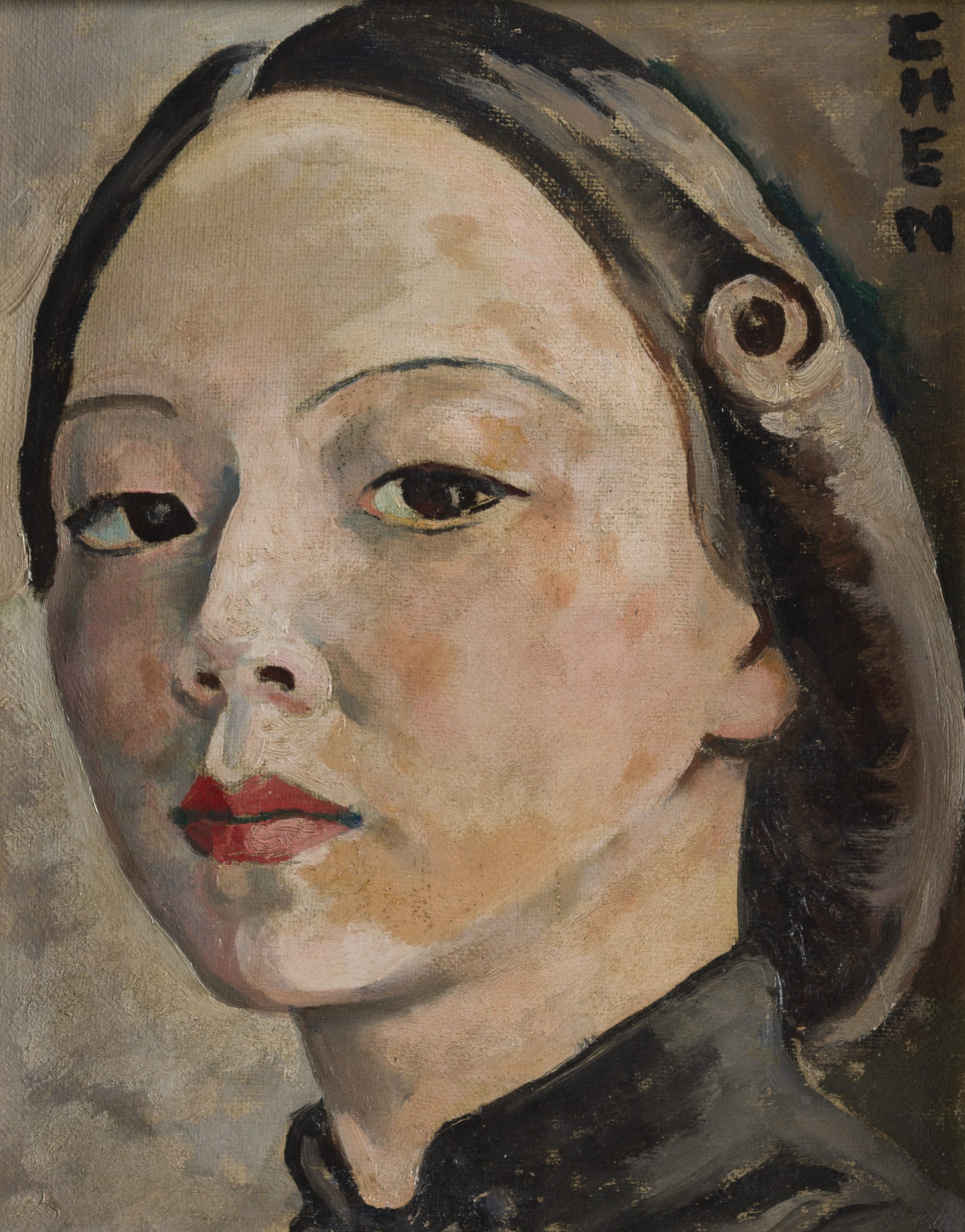
For the first time in the institution’s history, the National Gallery Singapore is participating in the Venice Biennale, invited to showcase a selection of works from the collection in the main exhibition curated by Adriano Pedrosa. The chosen pieces are featured within the Nucleo Storico section of the show in a sub-section dedicated to portraits, wherein the art historical canon is reconsidered beyond the contexts of Europe and North America.
Installation view of “Nucleo Storico” section in the main exhibition “Foreigners Everywhere,” with Self-Portrait (1975) by Affandi (pictured on the left), Venice Biennale 2024. Courtesy of the National Gallery Singapore.
The National Gallery Singapore is a notable inclusion, as its collection holds more than 8,000 works and is recognized as the largest public collection of Modern art from Southeast Asia, positioning it as a leader in curatorial and scholarly research into Singaporean and Southeast Asian art histories—and its importance within international art history. The 60th International Art Exhibition is titled “Foreigners Everywhere,” homing in on underrepresented and overlooked cultural and artistic traditions and practices, making it a prime moment for the institution to participate.
Lim Mu Hue, Self-Expression (ca. 1957-1963). Courtesy of the National Gallery Singapore.
“In his curatorial statement for Biennale Arte 2024, Adriano Pedrosa calls for a recognition of the modernisms beyond that of Europe and America, underscoring the importance of learning about and from these histories,” said the museum’s Senior Curator and Director Horikawa Lisa.
“The inclusion of these eight works in ‘Nucleo Storico’ is thus exemplary: through these portraits, the divergent paths to modernisms taken by artists from Southeast Asia are illuminated. Through its research and exhibitions, National Gallery Singapore articulates an approach to Southeast Asia art history that seeks not to add the region’s artists to a so-called ‘global canon,’ but instead to inflect and infect the very concept. I am excited to see what can happen now that works from our collection take their place alongside artists from the Global South in this historic congregation.”
Lê Phổ, Jeune fille en blanc (Young girl in white) (1931). Courtesy of the National Gallery Singapore.
The works on view range from self-portraits to depictions of indigenous peoples and working class individuals, offering a glimpse into the breadth and scope of not only the institutions collection, but the artistic traditions of the region as well. The eight artists included are Lê Phổ, Georgette Chen, Emiria Sunassa, Chua Mia Tee, Lim Mu Hue, Lai Foong Moi, Hendra Gunawan, and Affandi, together representing diverse and multifaceted backgrounds and perspectives.
Chua Mia Tee, Road Construction Worker (1955). Courtesy of the National Gallery Singapore.
The special feature of the National Gallery Singapore at the Venice Biennale not only marks a momentous occasion for the museum, but for the recognition and dissemination of Southeast Asian art on an international stage as well, creating new opportunities and encouraging research within the field.
Learn more here.